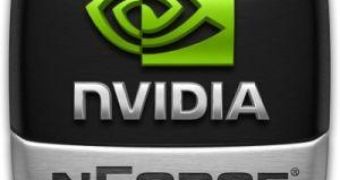NVIDIA has just announced something that has been rumored for quite some time now, namely that motherboard makers will implement the nForce 200 SLI chipset that will enable SLI configurations for upcoming Intel Bloomfield platforms. The feature is set to allow Core i7 users to connect up to three GeForce graphics cards for better graphics performance.
According to the Santa Clara, California-based chip maker, several board makers will introduce Core i7-supporting motherboards equipped with NVIDIA's nForce 200 SLI chipset. Makers such as ASUS, EVGA, MSI, DFI and Gigabyte are currently in the final stages of developing their high-end Intel X58 motherboards that will come with support for 3-Way SLI configurations. These upcoming boards are said to deliver unprecedented levels of performance in both computing experience and graphics capabilities.
“EVGA is continuing its tradition of bringing true enthusiast platforms to the market following the success with NVIDIA nForce-based SLI motherboards supporting Intel CPUs,” said Joe Darwin, director of Technical Marketing at EVGA. “By licensing NVIDIA SLI technology, the EVGA X58 motherboard will deliver the ultimate 2-way and 3-way SLI platform to, once again, meet the enthusiast’s demand.”
Some of the X58-based motherboards that are certified for NVIDIA's SLI Technology will be on display at the Intel Developer Forum that is held on October 20-21 in Taipei, Taiwan.
This being said, aside from the official announcement made by NVIDIA, there's a rather interesting piece of information regarding the certification process of these X58 motherboards. As it turns out, this process doesn't really come cheap for mobo makers, as they will be required to pay US$5 for each motherboard that they ship to NVIDIA for certification. This will ultimately reflect in the price tag of the upcoming motherboards, although a $5 difference is unlikely to keep enthusiasts away from buying the latest in computing technology.

 14 DAY TRIAL //
14 DAY TRIAL //